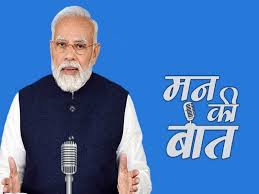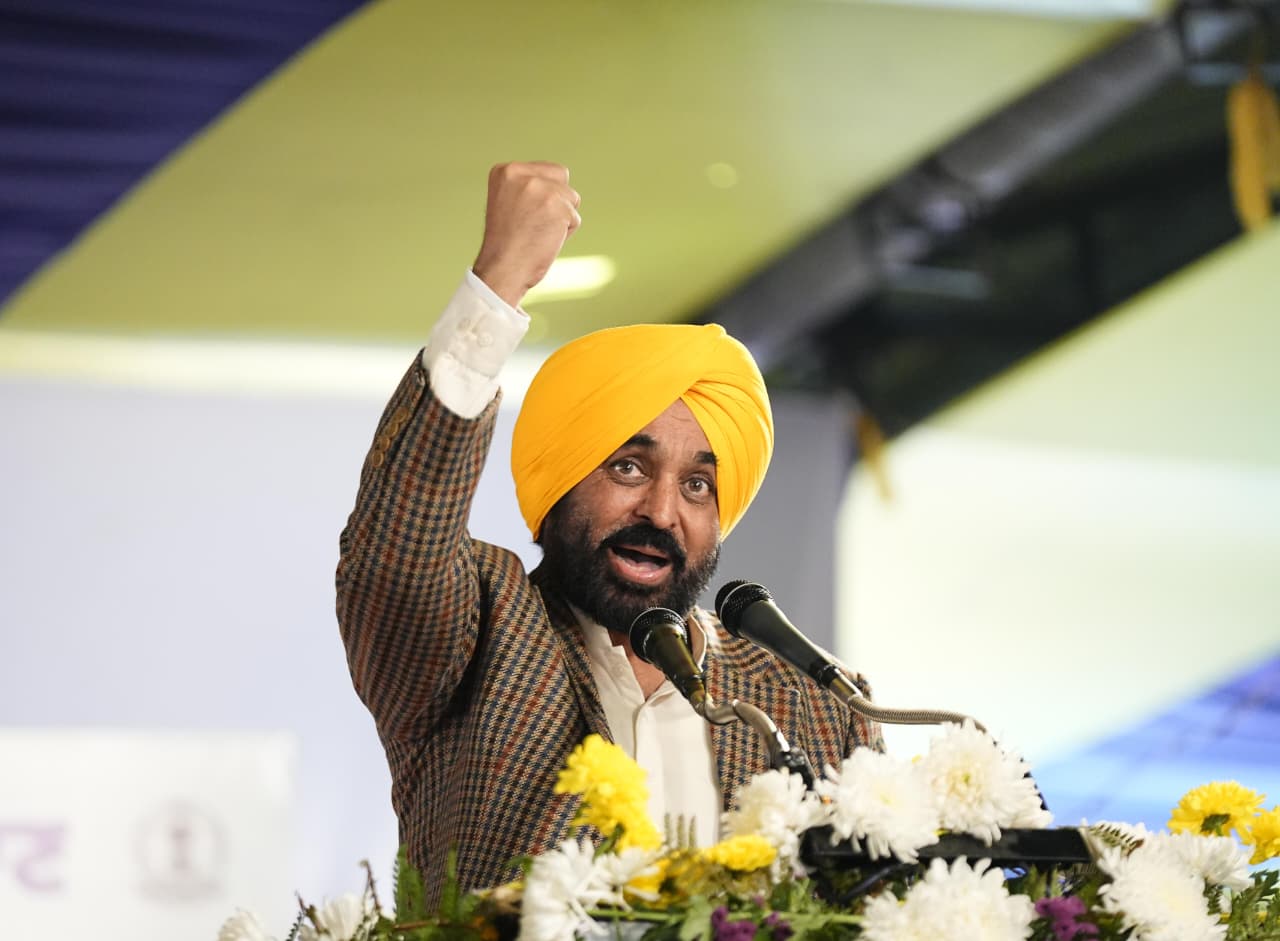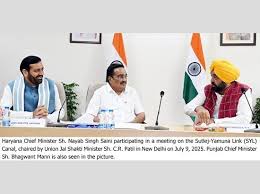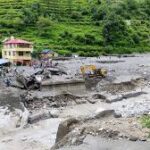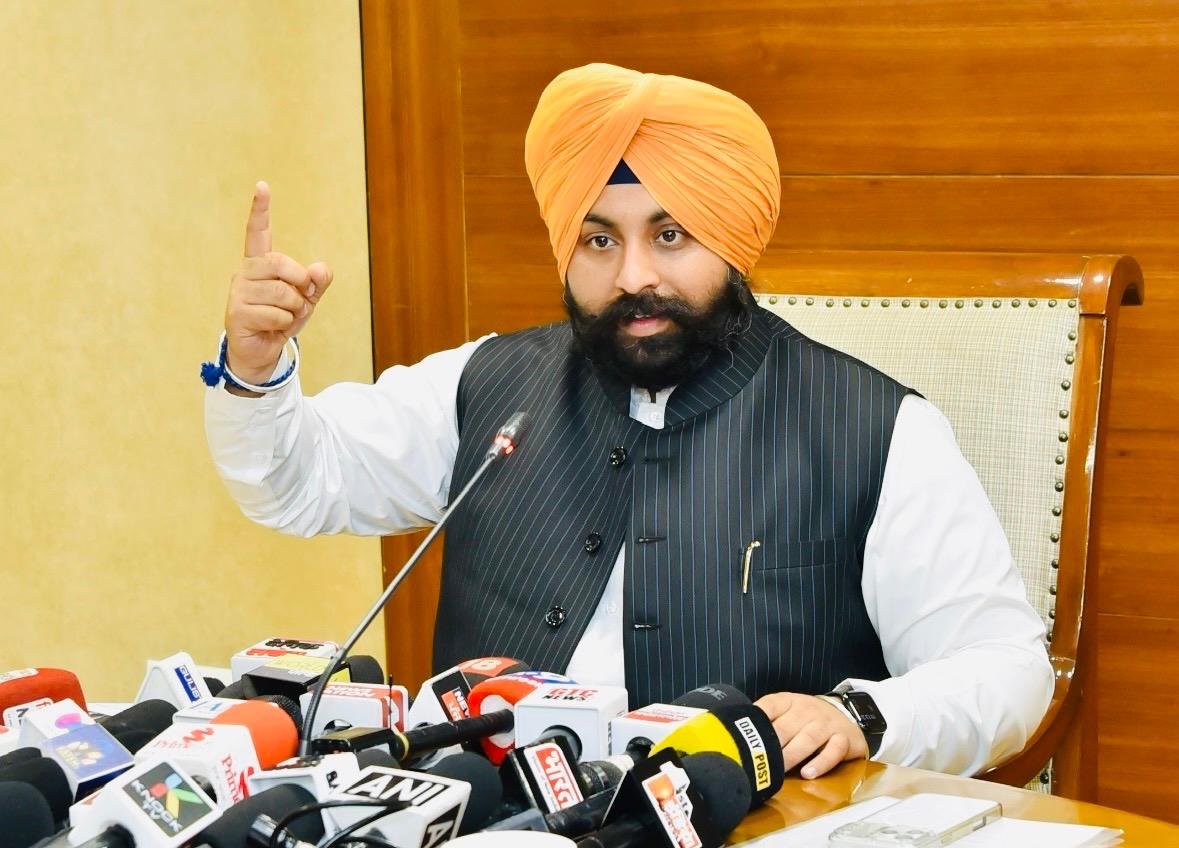Listen To This Post
Proposes using a suspended treaty with Pakistan to access western river waters; Centre to explore feasibility
Thenewsdose.com
New Delhi / Chandigarh, July 10, 2025, UPDATED: 7:35 PM
In a significant development aimed at resolving the decades-old Sutlej-Yamuna Link (SYL) canal dispute between Punjab and Haryana, Punjab Chief Minister Bhagwant Singh Mann on Wednesday proposed that the Union Government divert surplus waters from western rivers—particularly the Chenab—towards Punjab and Haryana, using the provisions of the suspended Indus Waters Treaty with Pakistan. The proposal was put forth during a high-level meeting convened by Union Jal Shakti Minister C.R. Paatil, following directions from the Supreme Court to resolve the contentious issue between the two states.
CM Mann’s proposal found a surprisingly receptive audience, with both the Union Minister and the Haryana Chief Minister, Nayab Singh Saini, ng it positively. “How long will we live with an ulcer? Why should the waters of the Indus and its western rivers go to Pakistan, which is shedding our blood? Who are we supposed to fight—Haryana or Pakistan?” asked Mann, addressing the media after the meeting.
Focus Shifts to Western Rivers: Chenab, Jhelum, Indus
Mann suggested that over 23 million acre-feet (MAF) of water from the Chenab River—a western tributary of the Indus—could be diverted to Punjab, and subsequently, to Haryana and even Madhya Pradesh. “We are fighting over a few MAFs in SYL. If we can access 23 MAF from the Chenab, this decades-old dispute can be settled once and for all,” he said.
Sources confirmed that the Central Government has taken note of the proposal and may initiate feasibility studies to explore water diversion from the western tributaries of the Indus—Chenab, Jhelum, and the Indus mainstem to Punjab and Haryana. These rivers currently flow into Pakistan under the 1960 Indus Waters Treaty, which allocates three eastern rivers—Sutlej, Ravi, and Beas—to India and three western ones to Pakistan.
However, following the 2019 Pulwama attack, India suspended specific cooperative mechanisms under the treaty, and Union ministers have since periodically hinted at reconsidering the treaty’s obligations.
Next Round of Talks on August 5; SC Hearing on August 13
As part of ongoing mediation efforts, CM Mann and CM Saini will meet again with the Union Jal Shakti Minister on August 5 to finalise a mutually agreeable position ahead of the Supreme Court hearing scheduled for August 13. The apex court, in its last hearing in May, had tasked the Centre—represented by the Jal Shakti Minister—to act as a facilitator and work out a resolution between the two states.
The SYL dispute dates back to the 1980s, rooted in water-sharing arrangements and the uncompleted canal meant to carry Sutlej River water to Haryana. While multiple court orders have favoured Haryana’s claim to the canal, Punjab has resisted its construction, citing depleting groundwater levels and the state’s water crisis.
Punjab Also Flags BBMB Concerns
During the same meeting, CM Mann also raised objections against the Bhakra Beas Management Board (BBMB), alleging that the body was unlawfully “usurping Punjab’s waters” and failing to uphold the state’s rights over its share of river water. Mann has repeatedly criticised the BBMB for functioning in a manner that he claims marginalises Punjab’s interests.
Strategic Recalibration or Political Optics?
Mann’s bold proposal to divert Indus waters—traditionally allocated to Pakistan—marks a strategic shift in Punjab’s approach, possibly aimed at bypassing the logjam with Haryana and reframing the issue in national security terms. Experts caution, however, that diverting western river waters involves not only massive inter-basin transfer infrastructure but also potential diplomatic fallout.
Nevertheless, the idea has injected fresh energy into what had become a legal and political deadlock, offering a potential long-term vision in place of bitter inter-state wrangling.






